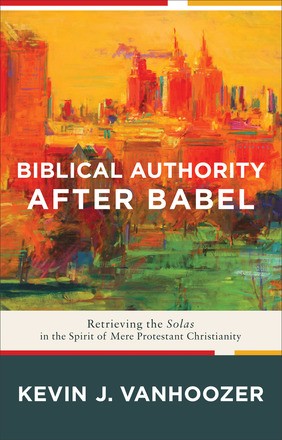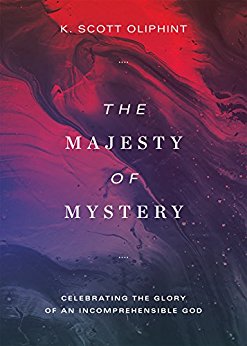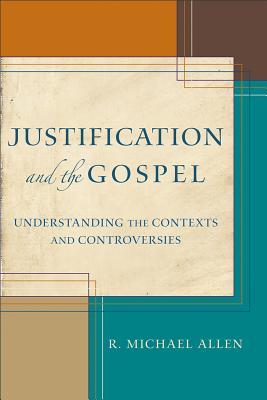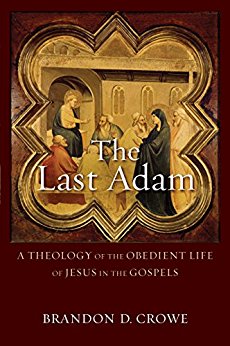Warfield, Benjamin B. “Darwin’s Arguments against Christianity and against Religion.” In Benjamin B. Warfield: Selected Shorter Writings. Volume 2. Edited by John E. Meeter. Phillipsburg, NJ: P&R, 1973.
Warfield opens this article by noting that numbers of scientific thinkers had abandoned religion. Here he examines Darwin’s autobiography to understand why. Darwin observes that he rejected Christianity when he could not harmonize Genesis with his theory of Evolution. In addition, Darwin said he could find no irrefutable proof for the veracity of the rest of Scripture. In his discussion of this last point, Warfield observes, “Nothing short of a miracle would then have convinced him, and nothing short of a miracle could have convinced him of a miracle. Surely a man in such a state of mind would be refused as a juror in any case.”
Darwin later rejected theism on the grounds that the argument of design falls to natural selection, the argument of the good order of the world falls in the face of suffering, the argument that most people in the world throughout history have been inwardly convinced of a god is unreliable (Darwin observed he once had such feelings and lost them). Darwin granted that the argument that the universe could not arise by chance had some weight with him. But then he thought, “Can the mind of a man, which has, as I fully believe, been developed from a mind as low as that possessed by the lowest animals, be trusted when it draws such grand conclusions.” Warfield observes, “Thus the last and strongest theistic proof fails, not because of any lack in its stringent validity to the human mind, but because so brute-bred a mind as man’s is no judge of the validity of the proof.”
Warfield concludes that Darwin’s “absorption in a single line of investigation and inference had so atrophied his mind in other directions that he had ceased to be a trustworthy judge of evidence. Whatever may be true in other cases, in this case the defection of a scientific man from religion was distinctly due to an atrophy of mental qualities by which he was unfitted for the estimation of any other kind of evidence than that derived from the scalpel and the laboratory, and no longer could feel the force of the ineradicable convictions which are as ‘much a part of man as his stomach or his heart.'”
Of course, the deep question is whether this was due merely to an atrophy that came about by working in a single direction of whether this is an example of “suppressing the truth” (Rom. 1).
Warfield, B. B. “On the Antiquity and the Unity of the Human Race,” The Works of Benjamin B. Warfield, 9:235-58.
The thesis of this article is that the age of humanity has no theological significance whereas the unity of mankind is highly significant to theology.
As to the former, Warfield argues that science and Scripture are not as much at odds as was often supposed. For one, the evolutionary scientists shortened their estimates of the age of mankind. On the other hand, Warfield argues that the genealogies prior to Abraham were not meant to provide chronological data. That that was not their purpose may be agreed on. That they don’t actually provide this data is another matter. Warfield’s assertion that they do not seemed superficial and not up to his usual work. He doesn’t satisfactorily account for the details of the text, such as the fact that Genesis 5 provides the length of time that a person lived until he fathered the next person in the genealogy.
More enduring is Warfield’s argument for the theological necessity of a unitary human race descended from Adam. The unity of the human race is still granted by evolutionists, but the descent from Adam is denied by may theistic evolutionists, leading them to revise key doctrines. Here Warfield’s insistence on the theological necessity of a unified human race descended from Adam remains relevant and necessary.
One could adapt Warfield’s thesis to the present debates and say that the age of the earth has no theological significance whereas the unity of the mankind is highly significant to theology. This sounds persuasive in the abstract, but when one asks what was happening in the long ages before the creation of Adam and Eve, the answer typically entails death, suffering, and natural evil. As I’ve noted elsewhere:
The problem of death and suffering before the Fall is far more serious than most theologians seem to realize. The conflict between evolution and Scripture is often seen as the chief apologetic challenge of the present time. But the chief philosophical challenge to Christianity is the problem of evil, and attempts to harmonize Scripture with evolutionary theory make defending Christianity against this challenge difficult if not impossible. The problem of evil has become more pointed as scientists learn more about certain animals’ sentience, capacity to experience pain, abilities to remember, and so forth. This has led many to conclude that animal suffering and death is a great evil. On this point the Bible is in agreement with modern science and philosophy. The Bible evidences concern for the wellbeing of animals (Prov. 12:10). The suffering of the non-human world is described as a condition of bondage, groaning, and pain as a result of sin (Rom. 8:20; Gen. 3:17-19). The earth awaits redemption (Rom. 8:23), and included in that redemption is the end of animal suffering and pain (Isa. 11:6-9; 65:25).
Traditionally, Christians have defended against the problem of animal suffering and death by pointing to the Bible’s teaching that it is a result of the Fall (Rom. 5:12; 8:20). In seeking to defend Christianity against those who say it is scientifically ill-informed, Christians who seek to harmonize the Bible and evolution have removed the biblical explanation of the problem of evil in the animal world.
I would therefore argue that both the age of the earth (not in the abstract, but given the theological implications that attend an old earth) and the unity of mankind are highly significant to maintaining orthodox theology.
Related Posts:




